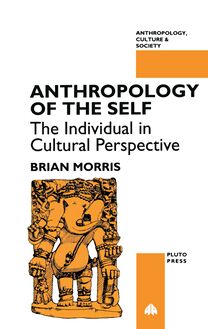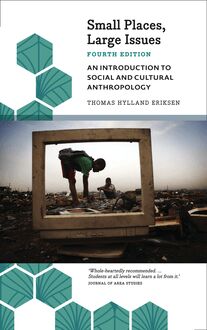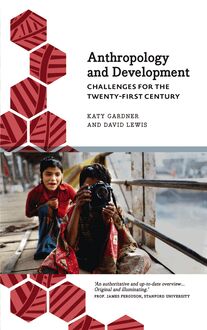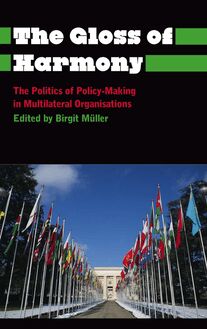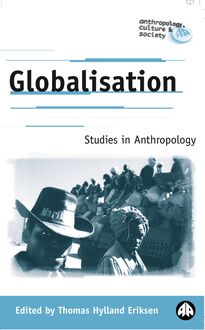-
 Univers
Univers
-
 Ebooks
Ebooks
-
 Livres audio
Livres audio
-
 Presse
Presse
-
 Podcasts
Podcasts
-
 BD
BD
-
 Documents
Documents
-
- Cours
- Révisions
- Ressources pédagogiques
- Sciences de l’éducation
- Manuels scolaires
- Langues
- Travaux de classe
- Annales de BEP
- Etudes supérieures
- Maternelle et primaire
- Fiches de lecture
- Orientation scolaire
- Méthodologie
- Corrigés de devoir
- Annales d’examens et concours
- Annales du bac
- Annales du brevet
- Rapports de stage
La lecture à portée de main
Vous pourrez modifier la taille du texte de cet ouvrage
Découvre YouScribe en t'inscrivant gratuitement
Je m'inscrisDécouvre YouScribe en t'inscrivant gratuitement
Je m'inscrisEn savoir plus
Vous pourrez modifier la taille du texte de cet ouvrage
En savoir plus

Description
This book reveals contradictory ways that local people attempt to connect to, and are disconnected by, foreign capital. Commentators on the situation have different frameworks, whether of dispossession and scarcity, the success of Corporate Social Responsibility, or imperialist exploitation and corruption. Yet as Gardner argues, what really matters in the struggles over resources is which of these stories are heard, and the power of those who tell them.
Based on the narratives of dispossessed land owners, urban activists, mining officials and the rural landless, Discordant Development shows the real picture behind the effect multinational capital has on indigenous communities.
1. Discordant developments: an introduction
2. Histories of connection: colonialism, migration and multinationals
3. Material Connections: Resources and Livelihoods in Duniyapur
4. Our Own Poor: Social Connections, ‘Helping’ and Claims to Entitlement
5. Claims of Partnership and Ethical Connection : Chevron’s Programme of ‘Community Engagement’
6. Rumour and Activism: Politics Break Out
7. Blow Out! Stories of Disconnection and Loss
Bibliography
Index
Sujets
Informations
| Publié par | Pluto Press |
| Date de parution | 17 février 2012 |
| Nombre de lectures | 0 |
| EAN13 | 9781849647076 |
| Langue | English |
| Poids de l'ouvrage | 1 Mo |
Informations légales : prix de location à la page 0,1850€. Cette information est donnée uniquement à titre indicatif conformément à la législation en vigueur.
Extrait
Discordant Development
Anthropology, Culture and Society
Series Editors:
Professor Vered Amit, Concordia University
and
Dr Jon P. Mitchell, University of Sussex
Recent titles:
Claiming Individuality: The Cultural Politics of Distinction
EDITED BY VERED AMIT AND NOEL DYCK
Home Spaces, Street Styles: Contesting Power and Identity in a South African City
LESLIE J. BANK
In Foreign Fields: The Politics and Experiences of Transnational Sport Migration
THOMAS F. CARTER
On the Game: Women and Sex Work
SOPHIE DAY
Slave of Allah: Zacarias Moussaoui vs the USA
KATHERINE C. DONAHUE
A World of Insecurity: Anthropological Perspectives on Human Security
EDITED BY THOMAS ERIKSEN, ELLEN BAL AND OSCAR SALEMINK
A History of Anthropology
THOMAS HYLLAND ERIKSEN AND FINN SIVERT NIELSEN
Ethnicity and Nationalism: Anthropological Perspectives Third Edition
THOMAS HYLLAND ERIKSEN
Globalisation: Studies in Anthropology
EDITED BY THOMAS HYLLAND ERIKSEN
Small Places, Large Issues: An Introduction to Social and Cultural Anthropology Third Edition
THOMAS HYLLAND ERIKSEN
What is Anthropology?
THOMAS HYLLAND ERIKSEN
Anthropology, Development and the Post-Modern Challenge
KATY GARDNER AND DAVID LEWIS
Corruption: Anthropological Perspectives
EDITED BY DIETER HALLER AND CRIS SHORE
Anthropology’s World: Life in a Twenty-First Century Discipline
ULF HANNERZ
Culture and Well-Being: Anthropological Approaches to Freedom and Political Ethics
EDITED BY ALBERTO CORSIN JIMENEZ
State Formation: Anthropological Perspectives
EDITED BY CHRISTIAN KROHN-HANSEN AND KNUT G. NUSTAD
Cultures of Fear: A Critical Reader
EDITED BY ULI LINKE AND DANIELLE TAANA SMITH
Fair Trade and a Global Commodity: Coffee in Costa Rica
PETER LUETCHFORD
The Will of the Many: How the Alterglobalisation Movement is Changing the Face of Democracy
MARIANNE MAECKELBERGH
The Aid Effect: Giving and Governing in International Development
EDITED BY DAVID MOSSE AND DAVID LEWIS
Cultivating Development: An Ethnography of Aid Policy and Practice
DAVID MOSSE
Ethnic Distinctions, Local Meanings: Negotiating Cultural Identities in China
MARY RACK
Terror and Violence: Imagination and the Unimaginable
EDITED BY ANDREW STRATHERN, PAMELA J. STEWART AND NEIL L. WHITEHEAD
Anthropology, Art and Cultural Production
MARUŠKA SVAŠEK
Race and Ethnicity in Latin America
Second Edition
PETER WADE
Race and Sex in Latin America
PETER WADE
The Capability of Places: Methods for Modelling Community Response to Intrusion and Change
SANDRA WALLMAN
Anthropology at the Dawn of the Cold War: The Influence of Foundations, McCarthyism and the CIA
EDITED BY DUSTIN M. WAX
Learning Politics from Sivaram: The Life and Death of a Revolutionary Tamil Journalist in Sri Lanka
MARK P. WHITAKER
First published 2012 by Pluto Press
345 Archway Road, London N6 5AA
www.plutobooks.com
Distributed in the United States of America exclusively by Palgrave Macmillan, a division of St. Martin’s Press LLC, 175 Fifth Avenue, New York, NY 10010
Copyright © Katy Gardner 2012
The right of Katy Gardner to be identified as the author of this work has been asserted by her in accordance with the Copyright, Designs and Patents Act 1988.
British Library Cataloguing in Publication Data
A catalogue record for this book is available from the British Library
ISBN 978 0 7453 3150 8 Hardback
ISBN 978 0 7453 3149 2 Paperback
ISBN 978 1 8496 4707 6 Epub
ISBN 978 1 8496 4708 3 Kindle
Library of Congress Cataloging in Publication Data applied for
This book is printed on paper suitable for recycling and made from fully managed and sustained forest sources. Logging, pulping and manufacturing processes are expected to conform to the environmental standards of the country of origin.
10 9 8 7 6 5 4 3 2 1
Designed and produced for Pluto Press by Chase Publishing Services Ltd
Typeset from disk by Stanford DTP Services, Northampton, England
Simultaneously printed digitally by CPI Antony Rowe, Chippenham, UK and Edwards Bros in the United States of America
Contents
Series Preface
1 Discordant Developments: An Introduction
2 Histories of Connection: Colonialism, Migration and Multinationals
3 Material Connections: Resources and Livelihoods in Duniyapur
4 Our Own Poor: Social Connections, ‘Helping’ and Claims to Entitlement
5 Claims of Partnership and Ethical Connection: Chevron’s Programme of ‘Community Engagement’
6 Rumour and Activism: Politics Break Out
7 Blow-out! Stories of Disconnection and Loss
Appendix: The Chevron Way
Notes
References
Index
Series Preface
Anthropology is a discipline based upon in-depth ethnographic works that deal with wider theoretical issues in the context of particular, local conditions – to paraphrase an important volume from the series: large issues explored in small places . This series has a particular mission: to publish work that moves away from an old-style descriptive ethnography that is strongly area-studies oriented, and offer genuine theoretical arguments that are of interest to a much wider readership, but which are nevertheless located and grounded in solid ethnographic research. If anthropology is to argue itself a place in the contemporary intellectual world, then it must surely be through such research.
We start from the question: ‘What can this ethnographic material tell us about the bigger theoretical issues that concern the social sciences?’ rather than ‘What can these theoretical ideas tell us about the ethnographic context?’ Put this way round, such work becomes about large issues, set in a (relatively) small place, rather than detailed description of a small place for its own sake. As Clifford Geertz once said, ‘Anthropologists don’t study villages; they study in villages.’
By place, we mean not only geographical locale, but also other types of ‘place’ – within political, economic, religious or other social systems. We therefore publish work based on ethnography within political and religious movements, occupational or class groups, among youth, development agencies, and nationalist movements; but also work that is more thematically based – on kinship, landscape, the state, violence, corruption, the self. The series publishes four kinds of volume: ethnographic monographs; comparative texts; edited collections; and shorter, polemical essays.
We publish work from all traditions of anthropology, and all parts of the world, which combines theoretical debate with empirical evidence to demonstrate anthropology’s unique position in contemporary scholarship and the contemporary world.
Professor Vered Amit
Dr Jon P. Mitchell
1
Discordant Developments: An Introduction
A field, a few kilometres away from the Kushiara River in Habiganj District, north-east Bangladesh: a small group of foreign men stand under the hot sun taking measurements from the damp soil. They have travelled here in a gleaming four-wheel drive, bumping along the dirt track that branches from the Sylhet to Dhaka Highway, past a seemingly endless vista of electric green paddy fields and small hamlets, the mud and thatch homes occasionally interspersed by the brick houses that characterise this Londoni (UK migrant) area. Bundles of straw lie drying across the road; the jeep’s progress has been frequently interrupted by the bleating goats and runty cows that have wandered in its path. Now that they are finally here the men work quietly, studiously ignoring the small crowd of children who have followed them from the road, and, amidst much hilarity, are calling laal bando! (red monkey!) from the safety of the path. It is not the first time the men have visited the area and, judging from the results of these early explorations, it will not be the last. They work for the company Occidental, and are prospecting for natural gas. It is the late 1980s.
March 2007: The rice fields have gone. In their place is a large gas plant, spread over 50 acres and connected to the newly metalled road by a grid of steep banked highways that cut across the surrounding agricultural land with industrial precision. Known as the ‘South Pad’ this is linked to the ‘North Pad’ a few miles away, as if both sites involved a mission to the moon. The North Pad was constructed by Occidental in the late 1990s at Dighalbak, close to the Kushiara River. But it is the completion of the South Pad in 2007 that heralds the opening of what becomes known as ‘the Bibiyana Gas Field’. Constructed and operated by the American oil giant Chevron, this is to be the smartest and most technologically advanced gas field in Bangladesh and is inaugurated with a fanfare of publicity. By 2010, it is predicted, it will be the biggest supplier of natural gas in Bangladesh, producing energy for the next twenty to thirty years. Included among the guests at the opening ceremony are government ministers, the US ambassador and the President of Chevron Bangladesh. Speeches are made, congratulations extended for the efficiency with which the project has been completed, corporate backs patted. In the national context of acute power shortages, where only a year earlier, farmers’ frustrations at the irregular supply of electricity boiled over into violent protest leading to the death of six people in Shibjanj, 1 and where industrial growth is held in check by limited and faltering energy flows, the country’s newly discovered natural gas reserves are the cause of significant optimism. If there have been national protests concerning the details of profit-sharing arrangements between Chevron and the government and rumours of a pipeline that will export the gas to India, not to say local agitation at the loss of land, now is not the time to mention it. In the four villages that surround the plant, glimpsed distantly across the shimmering fields, life appears to go on as normal.
Nadampur, December 2008: half a mile from the So
-
 Univers
Univers
-
 Ebooks
Ebooks
-
 Livres audio
Livres audio
-
 Presse
Presse
-
 Podcasts
Podcasts
-
 BD
BD
-
 Documents
Documents
-
Jeunesse
-
Littérature
-
Ressources professionnelles
-
Santé et bien-être
-
Savoirs
-
Education
-
Loisirs et hobbies
-
Art, musique et cinéma
-
Actualité et débat de société
-
Jeunesse
-
Littérature
-
Ressources professionnelles
-
Santé et bien-être
-
Savoirs
-
Education
-
Loisirs et hobbies
-
Art, musique et cinéma
-
Actualité et débat de société
-
Actualités
-
Lifestyle
-
Presse jeunesse
-
Presse professionnelle
-
Pratique
-
Presse sportive
-
Presse internationale
-
Culture & Médias
-
Action et Aventures
-
Science-fiction et Fantasy
-
Société
-
Jeunesse
-
Littérature
-
Ressources professionnelles
-
Santé et bien-être
-
Savoirs
-
Education
-
Loisirs et hobbies
-
Art, musique et cinéma
-
Actualité et débat de société
- Cours
- Révisions
- Ressources pédagogiques
- Sciences de l’éducation
- Manuels scolaires
- Langues
- Travaux de classe
- Annales de BEP
- Etudes supérieures
- Maternelle et primaire
- Fiches de lecture
- Orientation scolaire
- Méthodologie
- Corrigés de devoir
- Annales d’examens et concours
- Annales du bac
- Annales du brevet
- Rapports de stage
